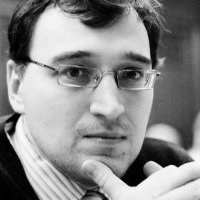It is Not Only About Germany: Technocratic Agenda and the European Project
Mark Leonard, Director of the European Council on Foreign Relations, recently discussed an important trend that looms over the European project. Commenting on the recent scandalous statements by the Germany populist politician Thilo Sarrazin and the disavowal of his position by leading German politicians, Leonard voiced his concern that if ‘the establishment cartel turns [populists like Sarrazin] into outcasts rather than arguing with their views’, they will be able to tap into an ever-growing ‘reservoir of pent-up political frustration’. Leonard goes on by stressing that it is particularly worrying that ‘Germany’s leaders are now trying to treat foreign politicians who question German orthodoxy the same way they treat their own populists’. German responses to the question of a Greek referendum …
A New Phase for Conflict Resolution in Transnistria: Prospects or Risks for European Security?
The deadlock in conflict resolution in Transnistria – as ‘frozen’ as it was – seems to start ‘melting’. It was about a year ago that Russian President Dmitry Medvedev tabled an exchange proposal to German Chancellor Angela Merkel: Russia would facilitate the resumption of the 5+2 negotiations on Transnistria (Transnistria, Moldova, Russia, Ukraine and OSCE, plus US and EU as observers) in exchange for setting up a joint EU-Russia council where Moscow would have a say in some EU decision-making procedures. Both sides stressed that their conditions should be satisfied first and rejected any speculations about preconditions. It is not surprising that after 20 years of Russian support to Transnistria, there is a lot of scepticism about whether Russia’s willingness …
Bin Laden vs. Kadyrov: the war on terror and Russian identity construction
Iver Neumann, an authoritative researcher of Russian affairs, claimed in his central work ‘Russia and the idea of Europe: a study in identity and international relations’, that Europe has always been an important ‘Other’ when it comes to how Russia constructs and sustains its identity. Whilst this still seems to be the case, it could be argued that Europe is only one Other in the story of Russia’s constant invention and reinvention of its own identity. After World War II, Russia’s favourite choice of Other became split. Europe became (and remains) the preferred Other in relation to Russia’s view of its internal organisation – state, society, and culture. However, the United States has taken the prime position in relation to …










